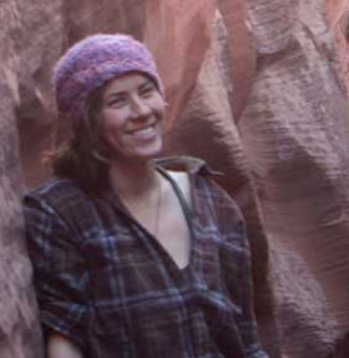“Our own reckoning with temptation is underway…”

Quarantine immobilizes our protests; planned demonstrations fall away like butterflies in a strong wind. In quarantine we are disembodied. Almost overnight, our go-to tactics — a rally here, a sit-in there — are no longer options.
For decades, we have agitated in one form or another for disruption. Emissions are too high, justice too low. Extinction Rebellion (XR) is the latest and perhaps most organized group to throw themselves at our societal leverage points. Based on nonviolent acts of civil disobedience, “rebels,” as they’re called within the group, strive to overturn the status quo using what’s at hand: their bodies. And they’re far from the only ones — citizens worldwide have stood together again and again as a physical barrier between our home planet and the machines tearing it apart.
In quarantine times, civil disobedience bows to solidarity. Where the legal system has long failed to deter activists, a neighborly conscience suddenly steps up. Stakes are raised: Is your pipeline protest worth endangering someone’s grandmother’s life? It goes without saying that flipping the question — Is a pipeline project worth endangering all of our lives? — is in bad taste. That’s not the point, you are told, as if suddenly there is consensus about what, exactly, the point of all this is.
Pipeline projects proceed, unimpeded, now ahead of schedule, now that no one agitates, demonstrates. Protesters yield to calls for solidarity; employees listen to their work orders.
***
The word quarantine, coming out of Venice in the 1600’s, refers to the forty-day isolation imposed upon ships, persons, animals, or plants on arrival at a port or place, when suspected of carrying disease. Quaranta, forty. Were Jesus’s forty days in the Judaean Desert, fasting and constantly tempted by the devil (as the story goes), a quarantine? Perhaps, seeking insight to carry forth, he had turned to the space and silence a quarantine can afford. Only after these forty days did the historical figure begin his public ministry.
Perhaps in his desert quarantine, Jesus confronted himself. Perhaps he sifted through his mind in search of whatever dis-eases he might be carrying, waiting to be spread.
What is compulsion, what is conformity, and what is choice?
To the extent that our species’ predilection for giving in to temptation, seeking immediate gratification, is at the root of our climate catastrophe, a quarantine has great potential. Stranded and suddenly bereft of many of our carefully built plans, our own reckoning with temptation is underway. The disease of our collective lifestyle falters. Will we rebound in the coming months to consume, travel, act, and dream as we always have? Or will we emerge from quarantine changed, with a new message on our lips? Now we know, as a species, the scale of what is not immutable after all.
***
We wanted disruption. We almost didn’t recognize it when it came, unexpected, as a global pandemic.
And still, pipeline projects proceed, now unimpeded.
This is life in the time of quarantine. Make it count.
*************************************************************************
Miranda Perrone is a writer, outdoor educator, activist, environmental scientist, and cartographer whose varied work strives for socioecological change. Her previous piece for Broad Street is “The Art of Living with the Unacceptable.”
This piece also appears, in slightly different format, on Medium as part of Broad Street’s blog, Pandemic 2020.









